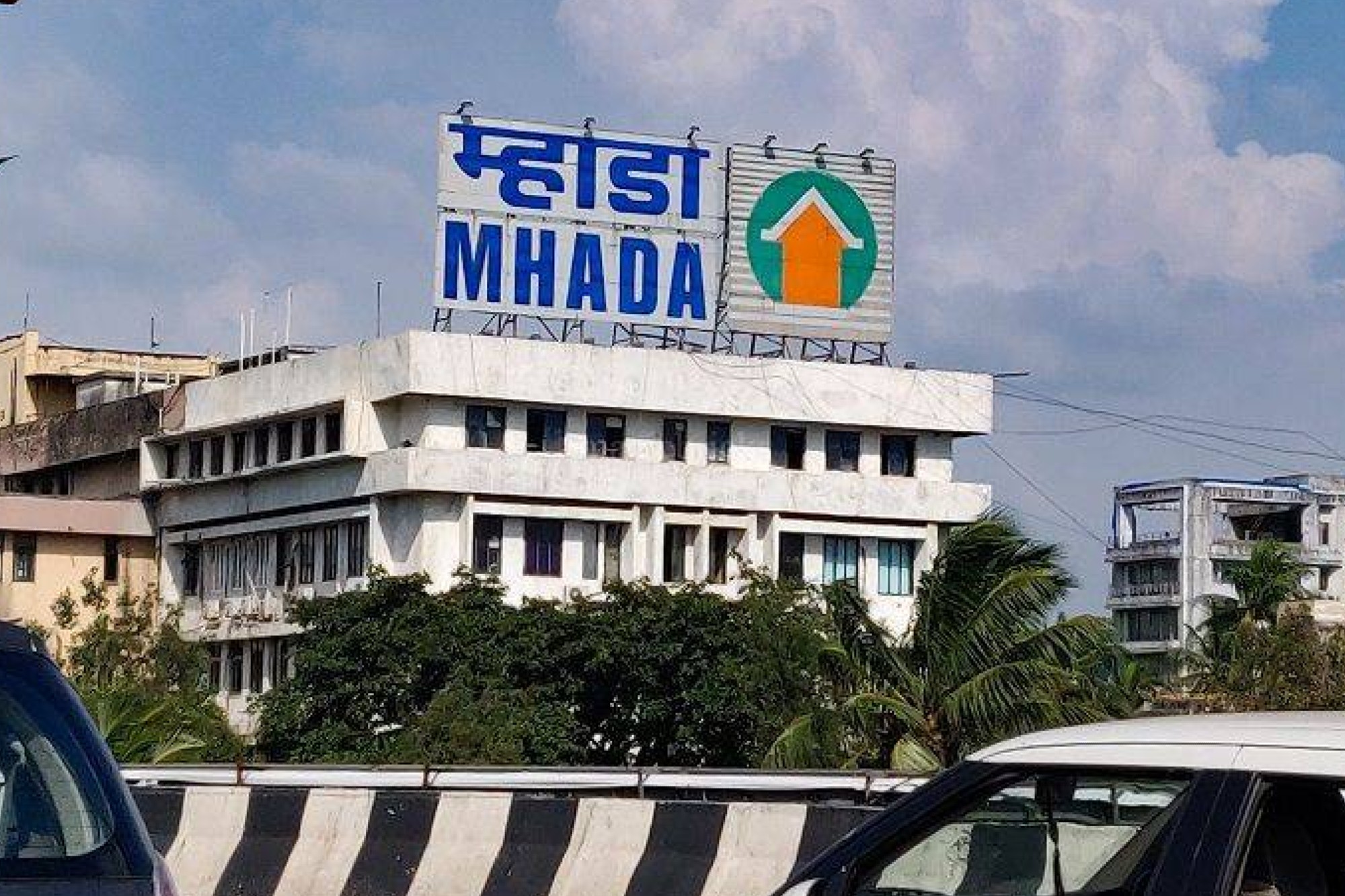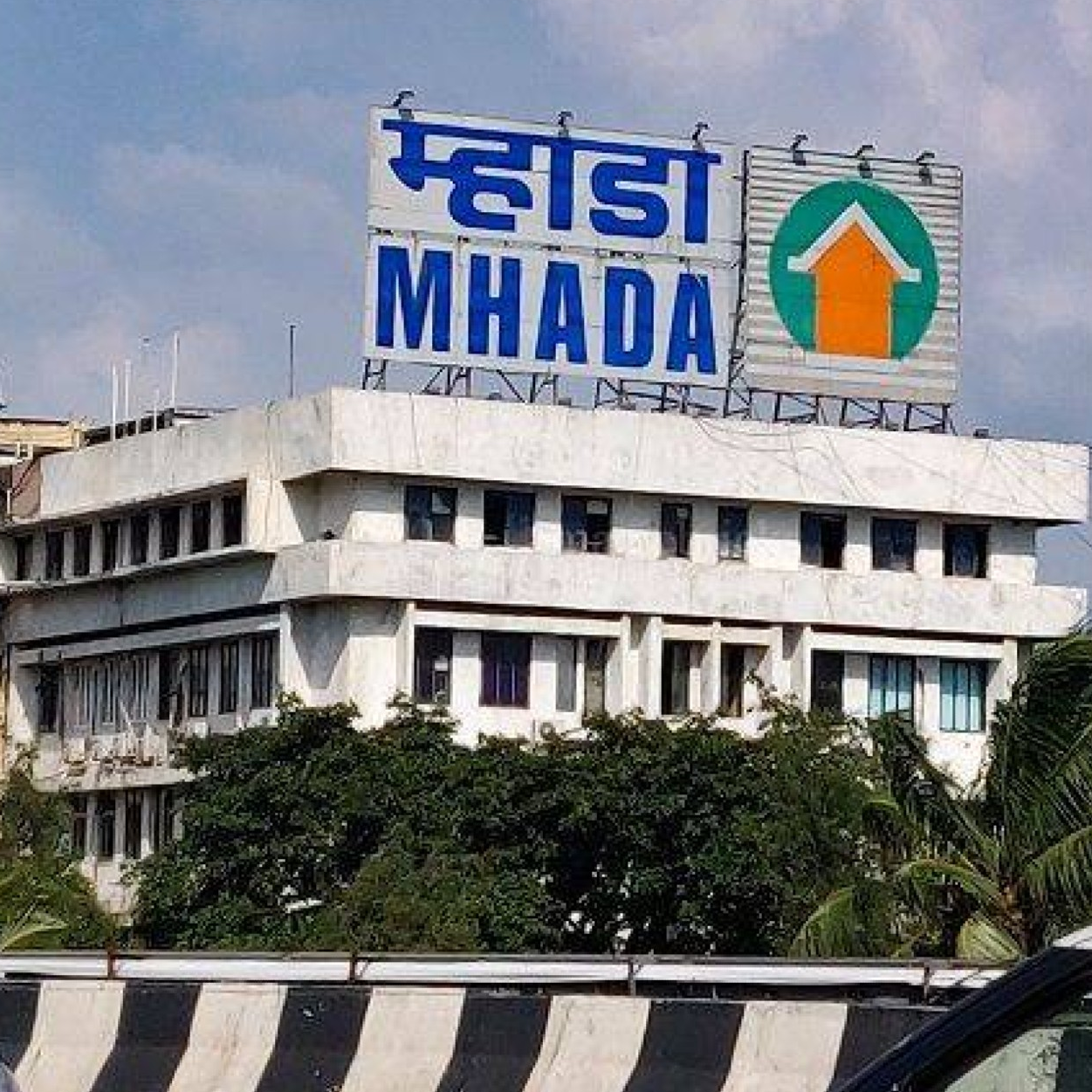
MHADA Housing Lottery 2025: 5,354 Homes and 77 Plots Allotted in Transparent Draw Led by IAS Sanjeev Jaiswal Across Maharashtra
In a major milestone for Maharashtra’s affordable housing mission, the Maharashtra Housing and Area Development Authority (MHADA), under the leadership of IAS Sanjeev Jaiswal, Vice President and CEO, successfully organised the Konkan Board Housing Lottery 2025 in Thane. The event, inaugurated by Deputy Chief Minister and Thane Guardian Minister Eknath Shinde, marked a defining moment in the state’s pursuit of inclusive urban growth and transparent governance. With 5,354 homes and 77 plots allotted through a fully computerised draw, MHADA reaffirmed its role as a cornerstone of accessible, people-centric housing solutions in Maharashtra.
Held at Dr. Kashinath Ghanekar Natyagruha, the ceremony was attended by several dignitaries including Transport Minister Pratap Sarnaik, MP Naresh Mhaske, MLA Niranjan Davkhare, District Collector Dr. Shrikrishna Panchal, and Konkan Board Chief Officer Revati Gaikar. The atmosphere reflected optimism, trust, and the government’s commitment to transforming aspirations into ownership — a crucial element in ensuring that every family has a dignified place to call home.
Transparency and Trust: A Modern Model of Governance
Speaking at the event, Deputy CM Eknath Shinde described the day as one of “happiness for thousands of families,” noting that owning a home signifies safety, dignity, and prosperity. He commended MHADA’s transparent process, emphasising that the allotment was conducted entirely through a computerised draw system, leaving no room for personal recommendations or influence.
The numbers underline public faith in the institution — over 1.84 lakh applications were received for the 5,354 available units, a powerful testament to MHADA’s credibility in providing affordable and reliable housing options. This high participation reflects the growing trust among citizens in Maharashtra’s digital governance initiatives, which combine efficiency with fairness.
Under IAS Sanjeev Jaiswal’s leadership, MHADA has focused on digitisation, transparency, and accountability, bringing technology into the heart of policy implementation. From online application systems to real-time draw monitoring, the housing authority has embraced a data-driven approach that strengthens public confidence while reducing manual intervention and procedural delays.
Building Homes, Building Confidence
Deputy CM Shinde further highlighted that reforms such as the reduction in GST slabs for housing have eased financial pressures on salaried and middle-income families. This move has made homeownership more achievable and strengthened the link between economic policy and social stability. The government’s proactive measures to ensure housing affordability are not just infrastructural — they represent a vision of inclusive prosperity.
In alignment with Prime Minister Narendra Modi’s “Housing for All” initiative, MHADA’s evolving policy framework prioritises working women, senior citizens, students, and mill workers — groups that form the social backbone of urban India but often face barriers to homeownership. Maharashtra’s approach blends economic reform with social responsibility, ensuring that affordability does not come at the cost of quality or dignity.
Shinde also announced that Maharashtra has become the first state in India to introduce a dedicated housing policy for senior citizens, underscoring the state’s commitment to inclusive and humane urban development. This policy aims to integrate accessible housing design, health facilities, and community engagement within residential projects for the elderly — a crucial step as India’s demographic profile evolves.
Urban Renewal Through Cluster Redevelopment
While affordable housing remains a priority, Shinde noted that cluster redevelopment projects will play a central role in reshaping Mumbai’s skyline. With millions of residents living in ageing buildings or congested neighbourhoods, these redevelopment initiatives promise not only new housing but also integrated infrastructure, green spaces, and sustainable planning.
MHADA’s redevelopment roadmap underlines a broader transformation — from fragmented construction to systematic, policy-led urban renewal. Such projects are expected to modernise the city’s housing stock while boosting employment in construction, design, and allied sectors. The ripple effects extend far beyond real estate, stimulating local economies and improving the quality of life across Mumbai and its suburbs.
Technology, Efficiency, and Citizen-Centric Approach
The event began with a welcome address by IAS Sanjeev Jaiswal, who reiterated MHADA’s commitment to transparency, digital efficiency, and innovation. He emphasised that technology is the backbone of MHADA’s operations, enabling citizens to participate in a fair and accountable process.
From online registrations to automated data audits, MHADA’s systems are designed to minimise human interference and maximise clarity. The 2025 Konkan Board Lottery showcased this shift — a seamless, fully digital process that reinforces public faith in the institution’s integrity.
Jaiswal’s focus on process integrity rather than procedural complexity is a hallmark of modern public administration. By simplifying access, digitising workflows, and standardising transparency norms, MHADA has evolved from a conventional housing board into a digitally empowered public trust.
Public Confidence and Policy Innovation
The scale of the MHADA Lottery 2025 is impressive not just in numbers but in its reflection of citizen trust in public institutions. With 1.84 lakh applicants, the event underscores how digital governance, when executed with precision and ethics, can elevate both accessibility and accountability.
MHADA’s transformation under Jaiswal’s leadership offers valuable lessons in public policy execution — that governance, when transparent, can be the most effective form of communication. Each application, each allotment, and each draw represents not just data but dreams — people’s faith in the system that promises fairness over favouritism.
Beyond the immediate success of the lottery, MHADA’s trajectory highlights a deeper narrative: that housing is not just a policy goal but an instrument of social equity. The authority’s housing models integrate affordability, quality, and sustainability — aligning with the evolving aspirations of India’s urban middle class.
Constructive Governance and Responsible Awareness
As digital processes expand, citizens are encouraged to verify all housing-related information through MHADA’s official website and channels. This awareness ensures that applicants remain informed and protected against misinformation or fraudulent intermediaries. The emphasis on official communication underscores MHADA’s broader mission — to make homeownership secure, accessible, and transparent for every applicant.
The institution’s digital ecosystem has made information publicly available, from eligibility criteria to allotment details, reinforcing the idea that transparency is the new trust currency in public administration. For policymakers, this transition illustrates how technology can humanise governance — when implemented with clarity and compassion.
A Milestone in Maharashtra’s Housing Journey
The 2025 Konkan Board Lottery stands as a defining chapter in Maharashtra’s housing narrative — combining administrative innovation with citizen empowerment. By ensuring that every step of the process is open, digital, and fair, MHADA continues to set benchmarks for institutional credibility across India.
Under the leadership of IAS Sanjeev Jaiswal, MHADA has not only expanded its housing footprint but also modernised its governance model, bridging the gap between aspiration and access. The initiative reaffirms that transparent systems and empathetic leadership remain the twin pillars of sustainable progress.
As Maharashtra moves closer to achieving universal housing access, the message from this event is clear — when governance listens, technology empowers, and leadership inspires, dreams turn into addresses.


